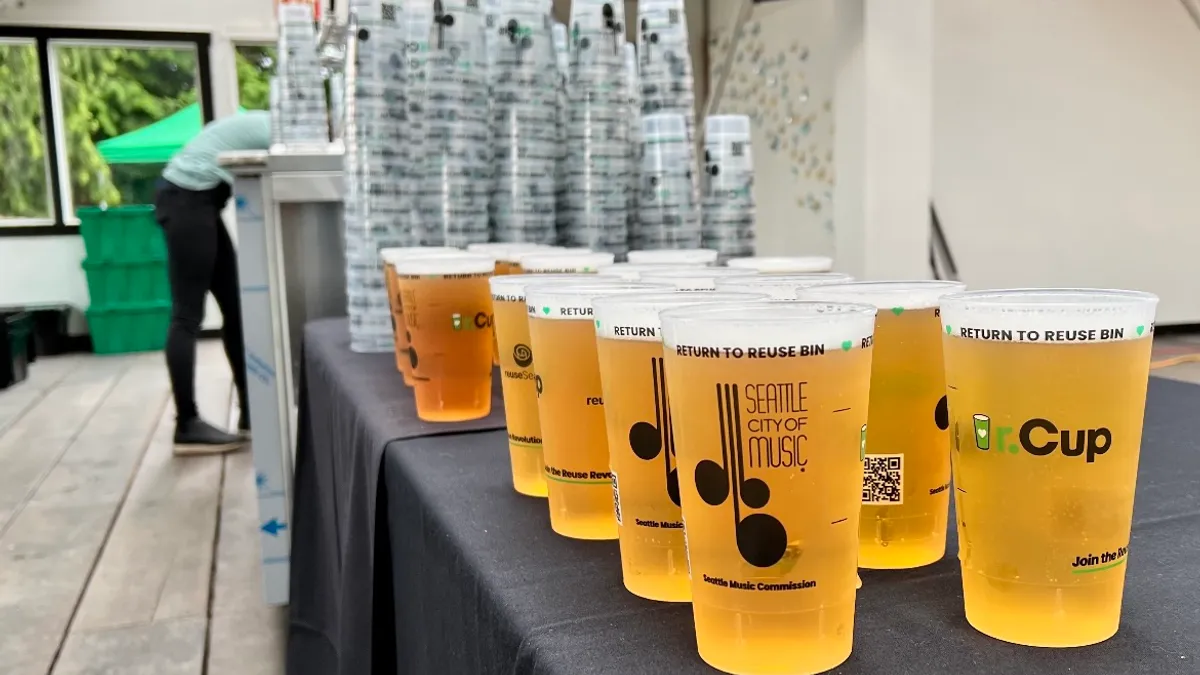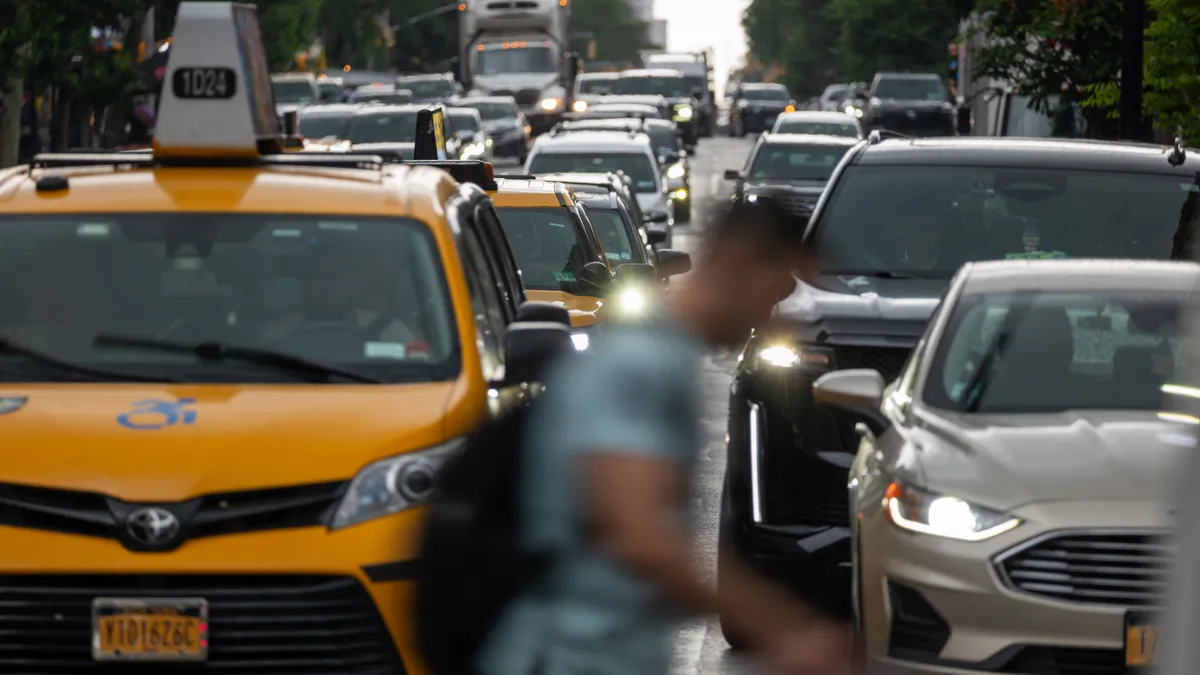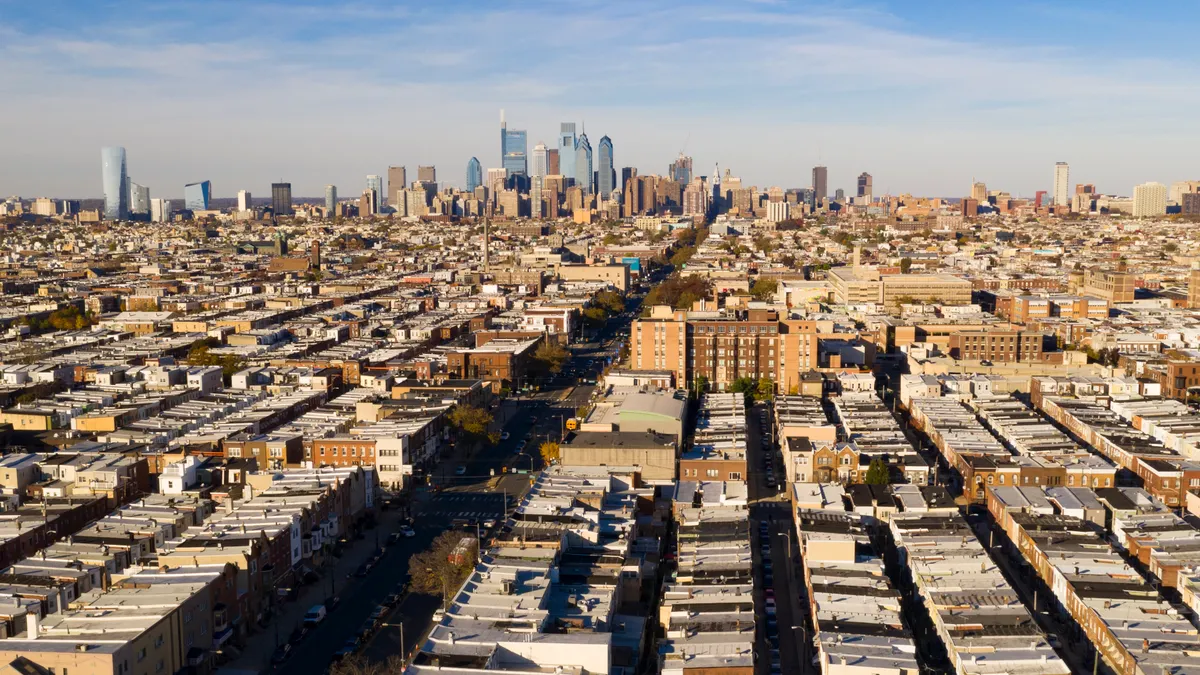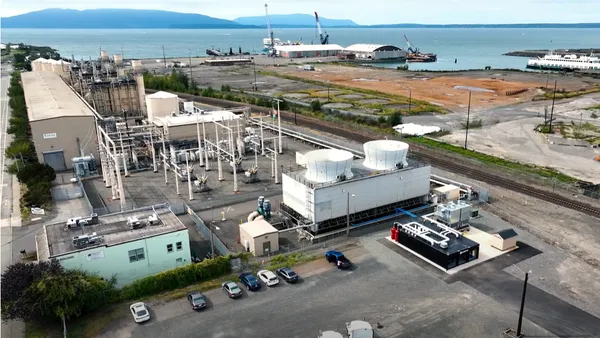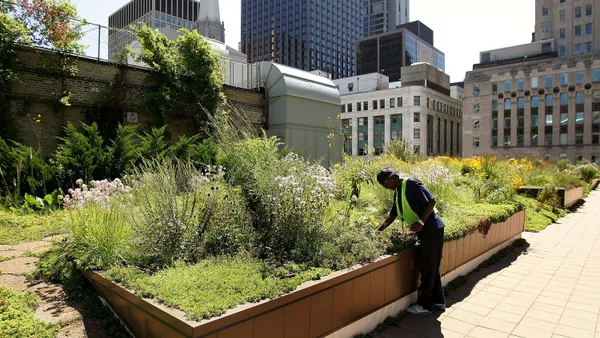Dive Brief:
- Reuse company r.Cup — which provides reusable container systems, largely to event venues — is operational and expanding its presence in Seattle as of this month, working with Seattle Public Utilities and other area partners. The company says its food and beverage wares are designed to be used 1,000 times or more.
- To support those operations, r.Cup is also opening a 8,500 square-foot wash hub facility in an “economic development zone” in the city with potential staffing through second-chance employment programs. “Having a localized dishwashing facility further reduces the environmental footprint by ensuring that no long-distance shipping is required in order to wash and reuse cups and containers,” the company said in a press release shared with Waste Dive.
- Prior to Seattle, r.Cup proliferated in city music venues in Denver, for example, and the company said in the release it expects to be operating in “a dozen or more markets” by the end of 2023 working through public-private partnerships.
Dive Insight:
According to Founder and CEO Michael Martin, r.Cup is the first reuse company to be operational as part of Reuse Seattle, a public-private partnership between the city, sports and entertainment venues, restaurants, businesses, reuse standards group PR3 and others. It comes as Seattle Public Utilities is in the process of updating its solid waste plan with an emphasis on a zero waste future.
While food and beverage-related reuse companies continue to spring up, factors like the pandemic, costs to businesses, and competing systems have continued to hold back adoption at scale. Dishwashing infrastructure has been another barrier for some reuse systems. The cost of setting up r.Cup’s wash hubs is a lot, and varies by market, Martin said. But once they’re built, r.Cup is open to other reuse companies using them, to help reduce infrastructure bottlenecks in the reuse space.
r.Cup — which handles planning, collection, transportation, cleaning and delivery of cups and containers — says it’s now able to support food service operators in settings such as corporate dining, college campuses and healthcare centers, food courts and festivals. In Seattle, the emphasis is largely on sports stadiums and music venues: relatively closed environments that allow for control of when and where the cups are used and how they’re returned.
Those types of closed venues represent “a really strong play to build scale with initially,” said Pat Kaufman, Seattle Public Utilities’ commercial recycle, compost and reuse program manager. So far, people who have engaged with the system have shared feedback that they like the cups and the system is intuitive, Kaufman said, but at outdoor venues there’s more of an issue with people taking cups home rather than returning them into the system as designed.
SPU is regularly speaking and partnering with reuse startups, but it’s keeping a high-level focus. “Right now, it's a bit of the Wild West in reuse; there’s so many different platforms,” Kaufman said, and the city’s aim is to help organize efforts. “We as a city would prefer to be able to message to the public that all these reuse services are all working in the same direction and that you as a consumer can easily find drop-off locations for your reusables.”
Given how new reuse-at-scale still is, it also has the opportunity to learn from some of the pitfalls of recycling and compost — namely, the confusion people have around how norms and rules vary by location or building, Kaufman explained. As such, SPU is closely involved and attuned with the work happening with PR3, so that it doesn’t try to reinvent the wheel.



